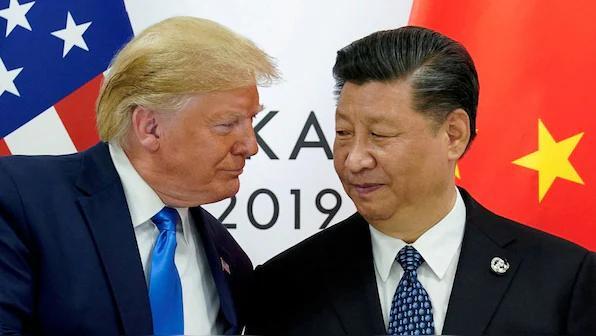
China Refuses to Join Denuclearisation Talks with US & Russia
China has been making headlines recently for its stance on global issues, and the latest development in this regard is its refusal to join trilateral denuclearisation talks with the United States and Russia. In a statement, Chinese Foreign Ministry Spokesperson Guo Jiakun rejected President Donald Trump’s call to include Beijing in future negotiations, citing the significant disparity in nuclear capabilities between China and the US.
According to reports, President Trump had previously expressed his willingness to involve China in the denuclearisation talks, which would aim to reduce the number of nuclear weapons held by the participating nations. However, China has now made it clear that it will not be a part of these talks, citing the limitations imposed by its nuclear capability.
Guo Jiakun, in a statement, said that the expectation of China joining the denuclearisation talks was “neither reasonable nor realistic.” He added that China and the US are not at the same level at all in terms of nuclear capabilities, and therefore, it was not feasible for China to participate in such talks. This statement comes as a major blow to the efforts of the international community to reduce the number of nuclear weapons globally.
The decision by China to refuse participation in the denuclearisation talks has been met with concern by many experts, who believe that this could hinder the progress of the talks and ultimately, the goal of reducing the number of nuclear weapons. The US and Russia have been engaged in denuclearisation talks for several years, and the inclusion of China would have been a significant step forward in this regard.
China’s decision to refuse participation in the talks is seen as a significant setback for the global efforts to reduce the number of nuclear weapons. The country’s nuclear capabilities are still much smaller compared to those of the US and Russia, and this disparity has been cited as a major reason for China’s reluctance to participate in the talks.
However, China’s refusal to participate in the talks also highlights its growing assertiveness on the global stage. In recent years, China has been increasingly vocal on various global issues, including trade, security, and human rights. Its decision to refuse participation in the denuclearisation talks is seen as a reflection of its growing confidence in its international stature.
The decision by China to refuse participation in the denuclearisation talks is also seen as a major blow to the efforts of the international community to address the growing threat of nuclear proliferation. The global community has been working together to reduce the number of nuclear weapons, and the inclusion of China in the talks would have been a significant step forward in this regard.
In conclusion, China’s refusal to join trilateral denuclearisation talks with the US and Russia is a significant development in the global efforts to reduce the number of nuclear weapons. While the country’s decision to refuse participation in the talks has been met with concern by many experts, it also highlights its growing assertiveness on the global stage.



